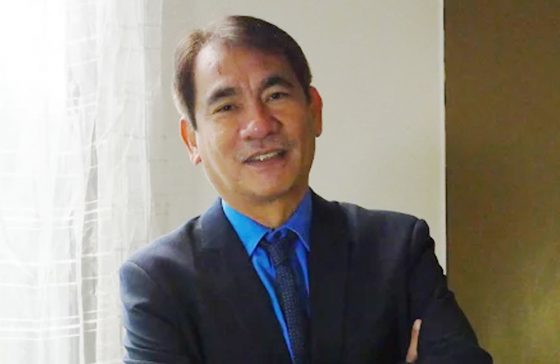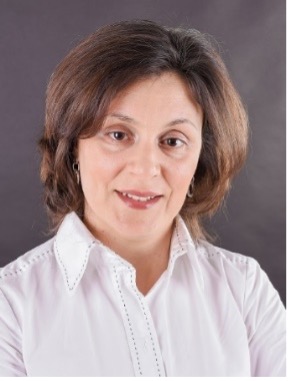Media and Information Literacy for Government Officials and Policy-makers
United Nations University Operating Unit on Policy-Driven Electronic Governance, United Nations Educational, Scientific and Cultural Organization, Autonomous University of Barcelona
Session 399
We live in a technology-driven world, characterized by an overarching trend for digitalization that crosses all sectors of society and in the face of the growing impact of media. Knowledge, skills and attitudes on media and information increasingly become an essential instrument for all citizens. The competencies for interaction and engagement of citizens with media and other information providers, including those on the Internet, are needed for all citizens and this is a lifelong learning process to which different stakeholders can contribute for, in formal, informal and non-formal initiatives.
Media and Information Literacy (MIL) has been growing steadily in all regions of the world, with many international and national organizations and initiatives being held. Nonetheless, MIL policies and strategies at the national level are still underexplored and countries need specific guidelines on how to design, implement and assess MIL policies for critical global citizenship, knowledge and pluralistic societies and for democratic participation with respect for fundamental rights and freedoms in a human-rights approach and in line with the United Nations’ Sustainable Development Goals.
The work from UNESCO in this regard is groundbreaking and there are countless efforts to promote and implement MIL internationally while accounting for its contribution for SDGs.
This workshop proposal draws on the need and importance of MIL policies and strategies at the national level and is inscribed in a current project being jointly developed by UNESCO (https://en.unesco.org/themes/communication-and-information), UNU-EGOV (United Nations University Operating Unit on Policy-Driven Electronic Governance https://egov.unu.edu) and UAB (Autonomous University of Barcelona https://www.uab.cat/web/universitat-autonoma-de-barcelona-1345467954774.html) to design a MIL Massive Open Online Course (MOOC) for Government Officials and Policy-makers.
This is a workshop that aims to bring together experts in the field from different areas of expertise and knowledgeable about the different levels of MIL maturity or development that can be found around the globe to sharing of ideas and experiences. Additionally, it is expected to focus on challenges in each context with the objective of informing future policy recommendations on the best strategies to cope with the identified challenges.
The first part of the workshop is to: 1) welcome participants and briefly present the MIL MOOC for Government Officials and Policy-makers outline and objectives; 2) give an overview of the UNESCO’s perspective on MIL policies and strategies; and 3) emphasize on challenges to MIL at the national level. The second part is for a moderated discussion with invited participants drawing on the context-specific challenges, opportunities and limitations of national MIL policies and strategies.
_b.i.t.online_Vera_Munch.JPG)
Barbara Lison is President-elect of the International Federation of Library Associations and Institutions (IFLA) and has been the Director of Bremen Public Library since 1992.
Barbara Lison has been actively involved in German and European library Associations and in IFLA for many years. She was President of the Federal Association “Library & Information Germany” (BID), the umbrella organization of the German Library Associations. From 2016 to 2019, she was Chair of the German Library Association (dbv). Furthermore, she held a number of senior positions in the European Bureau for Libraries, Archives and Documentation Associations (EBLIDA), including Vice President.
Barbara Lison is particularly committed to library policy and the development of libraries for the future.

RAMON R. TUAZON is UNESCO consultant in Myanmar. He is the secretary general of the Asian Media Information and Communication Centre (AMIC). Mr. Tuazon is the chairman of the Commission on Higher Education (CHED) Technical Committee for Communication (TCC). He is immediate past president of the Asian Institute of Journalism and Communication (AIJC).
He is co-author of Media and Information Literacy: Curriculum for Teachers (UNESCO, 2011) and contributed to its 2nd edition, MIL Curriculum for Educators and Learners (2021).
He successfully lobbied for the inclusion of MIL as a core subject in Philippine basic education and led the crafting of the Towards MIL Competency Framework in Myanmar.
He has participated in several international and national projects in such areas as communication and journalism, education and literacy, children’s rights, agriculture and rural development, and judicial reform.
Mr. Tuazon was the project director of the EU-funded Safeguarding Press Freedom in the Philippines Project which produced the Philippine Plan of Action on the Safety of Journalists, the first of its kind in the world.

Mrs. Dorcas Bowler began a rewarding career in teaching in 1981 and was employed in schools at the elementary and secondary levels, of the Ministry of Education in Nassau, Bahamas. Past President of the Association of Caribbean University Research and Institutional Libraries (ACURIL). She possesses a Bachelor’s of Education Degree with Honours, tenable at University of West Indies (UWI) and a Master’s Degree in Library Science from the University of Toronto. As there was a dire need for more professionals in the field of Librarianship in The Bahamas, she was pleased to pursue a career in Library and Information Science in promotion of Information Literacy. In 2012, Mrs. Bowler was appointed to the post of Director of Libraries, National Library and Information Services Department, Ministry of Education with oversight of libraries in The Bahamas.

Tomás Durán-Becerra is head of research at the Social Innovation Scientific Park (PCIS) at UNIMINUTO University in Colombia. He holds a Ph.D. in Journalism and Communication from the Autonomous University of Barcelona and has been working on MIL since 2013. Tomás is a full member of the UNESCO-UNAoC MILID Network. His research is mostly based on MIL, Education, and Technology policies.

Alton Grizzle is a happily married husband, father, (…)*, and a person who loves and respect all peoples. He works at the UNESCO HQ in Paris as Programme Specialist in Communication and Information. He manages of UNESCO’s global actions on media and information literacy and is a former focal point on gender and media. He has written on the topic of media and information literacy (MIL) and presented at various conferences and meetings around the world. Alton has diverse education and experience in the fields of education, management, information systems and media and communication. He has conceptualized and spearheaded many initiatives and projects, authored articles, and co-authored and edited books relating to MIL, gender and media, media development, communication for development. Prior to UNESCO, he was an educator/principal at secondary school and adult vocational training levels of the education systems in Jamaica for ten years. He holds a Diploma in secondary education from the Mico University College, a Bsc. in management and economics at the University of the West Indies (UWI), an Msc in Computer-based Management Information Systems from the UWI, MA in Media and Communication from the University of Leicester, UK; and a Ph.D. in Communication and Journalism from the Autonomous University of Barcelona, Spain. *
*Artistic or poetic license.

Delfina Soares is the Head of the United Nations University Operating Unit on Policy-Driven Electronic Governance (UNU-EGOV), Assistant Professor at the University of Minho, and researcher at the Centro ALGORITMI of the same university (currently on leave).
Delfina’s areas of research and expertise include electronic governance (EGOV) at a national and local level, EGOV interoperability and cross-agency collaboration, e‑participation, and EGOV measurement and monitoring.
Over her career, Delfina has supervised multiple research projects on the use of digital technologies to promote the transformation and modernization of governance activities. Delfina has coordinated and collaborated in advisory, consultancy and capacity-building projects with government agencies in countries worldwide and with many international organizations and ONGs in the EGOV area.
Delfina has integrated the organizing and scientific committees of many conferences and is member of the advisory board of numerous national and international projects and organizations in the digital governance area.

Laura Cervi is Serra Húnter Professor at the Department of Journalism and Communication Sciences of the Autonomous University of Barcelona (UAB). PhD degree in Political Science from the University of Pavia (Italy) and the Autonomous University of Barcelona (Spain).
Member of the Communication and Education Office research group of the Autonomous University of Barcelona, which is led by José Manuel Pérez Tornero.
Participant in several publicly funded Spanish and European research projects related to media literacy and citizen participation: “DINAMIC, development of individual, corporate and citizen media literacy indicators” (2012-2014); “Showing films and other audio-visual content in European Schools - Obstacles and best practices” (2013-2014); “EMEDUS, European Media Literacy Education Study” (2012-2014). Former lead researcher, together with José Manuel Perez Tornero, of the European Project Y-NEX, European Youth News Exchange (2015-2017).

Mariana Lameiras is a Senior Academic Fellow at the United Nations University Operating Unit on Policy-Driven Electronic Governance (UNU-EGOV) and researcher of the Communication and Society Research Centre (CSRC) of the University of Minho (Braga-Portugal) in the field of Political Economy of Communication and Communication Policy, with particular interest in governance and media regulation. Currently, her research areas are e-Government, (e-Government) monitoring and assessment, e-Participation and Digital Media.
She is national correspondent of the European Audiovisual Observatory collaborator (EAO) and the Institute for Information Law (University of Amsterdam), developing collective studies and writing articles on a permanent basis for IRIS - Legal Observations of the EAO and Merlin database.
-
 C1. The role of governments and all stakeholders in the promotion of ICTs for development
C1. The role of governments and all stakeholders in the promotion of ICTs for development
-
 C3. Access to information and knowledge
C3. Access to information and knowledge
-
 C4. Capacity building
C4. Capacity building
-
 C8. Cultural diversity and identity, linguistic diversity and local content
C8. Cultural diversity and identity, linguistic diversity and local content
-
 C9. Media
C9. Media
-
 C10. Ethical dimensions of the Information Society
C10. Ethical dimensions of the Information Society
MIL as a composite concept embraces the knowledge, skills and attitudes that allow citizens' critical thinking and meaningful interaction with content "in all forms of media and with all information providers”, as per UNESCO's seminal work. By targeting Government Officials and policy-makers, the Media and Information Massive Open Online Course being developed aims at informing, training and raising awareness of MIL policies and strategies at the national level within the context of rapid digital and communication innovation and sustainable development.
-
 Goal 4: Ensure inclusive and equitable quality education and promote lifelong learning opportunities for all
Goal 4: Ensure inclusive and equitable quality education and promote lifelong learning opportunities for all
-
 Goal 5: Achieve gender equality and empower all women and girls
Goal 5: Achieve gender equality and empower all women and girls
-
 Goal 11: Make cities inclusive, safe, resilient and sustainable
Goal 11: Make cities inclusive, safe, resilient and sustainable
-
 Goal 16: Promote just, peaceful and inclusive societies
Goal 16: Promote just, peaceful and inclusive societies
Through MIL, citizens can better understand their rights and responsibilities in a digitized society, have the skills and competencies to navigate in information and interact with media and information providers, be aware of intersectionality and different forms of discrimination, thus helping to advance the achievement of SDGs, namely 4, 5, 11 and 16.
https://www.uab.cat/web/universitat-autonoma-de-barcelona-1345467954774.html
https://en.unesco.org/themes/communication-and-information
https://egov.unu.edu/
